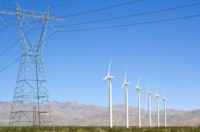Slammed by a federal court in April over lack of environmental protection in its blanket water-crossing construction permit for the Keystone XL oil pipeline, the U.S. Army Corps of Engineers is closing in on key changes to its Nationwide Permit program.
With public comment ended Nov. 16, the Corps is weighing revisions that would affect Keystone XL and other projects. The proposal should streamline the process for the controversial Nationwide Permit-12, a target of fossil fuel project opponents, and help permits withstand new lawsuits, says Sarah Soard, a Burns & McDonnell environmental services manager.
In yet another legal tussle over a pipeline using that permit—known as NWP-12—a Richmond, Va., U.S. appeals court said Nov. 18 that the $6-billion Mountain Valley natural gas line could continue clearing, grading, and other earth-disturbing construction—rejecting opponents' call for an emergency halt until it rules on a broader permit challenge.
But in a separate Nov. 9 decision, the same court had granted an emergency halt to any water-crossing work for the 303-mile line in Virginia and West Virginia under the NWP-12 permit, pending the bigger final ruling next year. The much-challenged project, already about two years behind schedule, is further pushed back until late 2021, its builder has said.
In a statement, a project spokeswoman said the Nov. 18 decision to allow some work "is evidence that [the project] has taken the right steps to ensure that its planned construction activities will continue in a manner that best protects the environment."
The Corps has 52 NWPs based on project type. NWP-12 allows dredge-and-fill work and building structures in, over or under water bodies for most oil, gas, electric transmission, water/wastewater, cable and other projects. Project activity with minimal site disturbance can get an NWP permit for the entire work scope rather than approvals for each crossing.
NWP process time averaged 45 days, compared to 264 days for an individual permit, said the Corps. It generally updates NWPs every five years. Current rules expire on March 2022 but it is unclear if the proposed changes would go into effect before then, possibly even by year end.
Fixes Proposed
With NWP-12 permits for oil and gas pipelines targeted, the Corps has proposed that the permit be limited to those projects.
The agency would create separate NWPs for electric and telecom transmission, utility water and wastewater lines, and for water reuse and reclamation plant work. Other proposed NWP changes include permits required for road access to land-based renewable projects or utility substations, raising the size cap on hydropower projects covered, and lowering limits for stream-bed losses in those NWPs that now have them.
The proposal adds a required preconstruction notification to build energy pipelines longer than 250 miles, but removes many utility project notification “triggers” the Corps now mandates. The agency would also close a loophole for projects with more than one NWP whose requirements differ, and increase the size of “minor dredging.”
A federal district court in Montana had struck down the NWP-12—initially invalidating it nationwide—but later narrowed its ruling to oil and gas lines only. The U.S. Supreme Court then stayed that revised decision, except for Keystone XL, until a San Francisco appeals court case ruling, which is expected next year or possibly later.
Keystone XL owner TC Energy has applied for individual U.S. stream crossing permits for the 1,661-mile Alberta-to-Nebraska line and is working “diligently” to have them in hand to begin construction next summer, a company spokesman told ENR.
The ruling had “real ramifications,” says Lawrence Liebesman, senior advisor at policy consultant Dawson & Associates. Proposed changes could reduce administrative holdups, he says.
Corps Pressured?
But Marty Jorgensen, president of Barnard Construction’s pipeline unit, opposes separating NWP-12 groups, claiming utility projects can do as much wetland damage as oil and gas lines. “It gives another reason for anti-fossil fuel people to hold up projects,” he says. “The Corps is being pressured by environmental groups.”
Robin Rorick, an American Petroleum Institute vice president, says the proposed change to consider the type of product in a pipeline exceeds NWP 12’s intent and “adds layers of confusion. If it hangs up projects, no one comes out the winner.”
But for the Edison Electric Institute, which represents investor-owned utilities, “it makes sense for us to be in a separate category,” says Alex Bond, associate general counsel for energy and environment. He says electric lines have fewer dredge-and-fill risks than pipelines and that transmission projects, a key to clean energy growth, would move more quickly as regulatory certainty improves.
Doug Hayes, senior attorney for the Sierra Club, the main litigant against Keystone’s permit, says NWP permits for fossil fuel projects “need individual review.” The group also says the proposal remains inadequate related to protections related to petroleum spills, climate change and endangered species.
The Corps says spills are enforced under the federal Clean Water Act and through other state and federal mechanisms.
Proposal commenter Josh Jamell, an Atkins Global senior ecologist, asked “what changes are so significant that they must occur now?”
Also not clear is how the Biden administration will respond to aspects of the proposal, including its plan to exempt federal agencies from some environmental rules, seen as related to President Donald Trump’s June 4 executive order to accelerate federal construction projects.
One anonymous commenter suggests a Corps pause on the NWP fixes until the Biden team provides “alternative executive guidance.”







Post a comment to this article
Report Abusive Comment